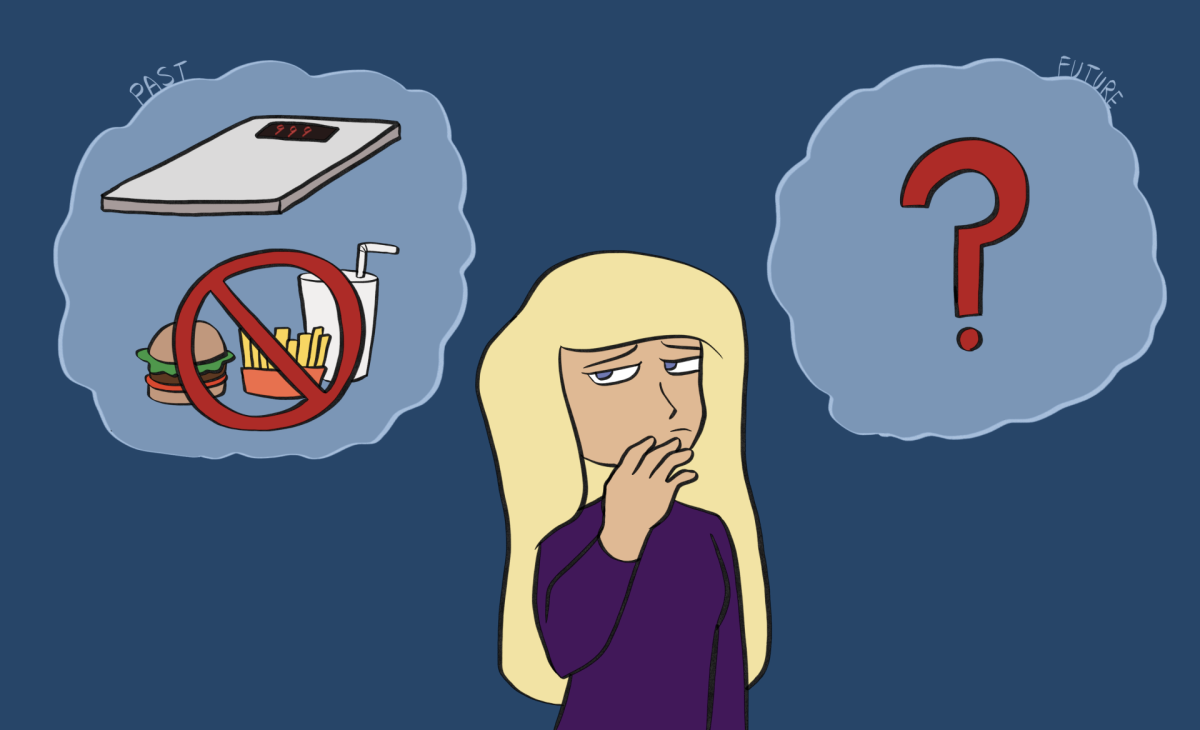I believe teens have too high of expectations for what their bodies should look like. Today in commercials and every magazine people are digitally altered. Their stomach and hips are made smaller, their teeth are whitened, and their blemishes are erased.
What young teens don’t know is the extent that they witness this in their daily lives. They do not know how much is altered and they think it is attainable and because of this, they look down on themselves. A lot of them look down on themselves for not having a flat stomach or a perfect face. This type of thinking leads to eating disorders, extremely low self-esteem, and even depression. That is why something must change in the media so teens don’t think they are worthless.
So many of my friends and family have dealt with eating disorders and low self-confidence because they are not happy with what they look like. Up to 24 million people of all ages and genders in the United States suffer from an eating disorder. People get these ideas of the perfect body in their heads from the media. From the magazines they read to the commercials they see on T.V., there needs to be a way for them to know those images they see on a daily basis aren’t even close to being real. Although many people know how much people are Photoshopped today, the majority of young teens don’t know this or don’t internalize this information. They are the group most vulnerable to the psychological effects of excessive Photoshopping.
The reason so much Photoshopping is happening is because magazines want to put their best foot forward. Alice Chen, an employee at Lucky magazine, disagrees with limiting Photoshop and says it is the same thing as getting ready in the morning. “Are magazines not doing what we do every morning when we pick out an outfit, swipe on our makeup and style our hair?” she asks.
Chen has a point when saying we try to look our best; however, we look realistic when we’re done getting ready in the morning, while the photos do not. This is why it needs to be more known to young teens how much altering goes on in magazines.
Many celebrities have become terrible role models when it comes to beauty. Madonna has had multiple plastic surgeries because she does not want to embrace her age or natural beauty. Tara Reid has also had multiple plastic surgeries and dealt with an extreme eating disorder. Both of them are doing this to look better and reach the high standards of Hollywood.
Of course, there are celebrities that are great role models too. Kate Winslet and Lena Dunham were fine with the original copies of their photo shoot going around the internet because they knew the actual covers looked nothing like them. Jennifer Lawrence has spoken out multiple times about having a good body and that it is wrong for people to not eat just to make others happy. In 2013 she had an interview with Yahoo and said, “We see this airbrushed perfect model, but you just have to look past it. You look how you look. Be comfortable. What are you going to do? Be hungry for the rest of your life just to make people happy…It’s disappointing that media keeps it alive and fuels that fire.” These three women are perfect examples for role models for the youth and everyone should lead in their example.
One way we can help people’s self esteem are campaigns. Dove, the cosmetic company, has multiple commercials revolving around loving who you are and embracing what you have. Aerie, a clothing company, started to hire more average models rather than super models, and says they are not Photoshopping any of the models picture on their website.
Companies can’t be the only ones doing something though. One great measure would be for cities to start advertising a healthy body image, a measure that New York City has started doing right now. The city is putting ads on benches and buses with the caption, “I’m a girl. I’m beautiful the way I am.” With more campaigns like these we are on a great path to heightening self-esteem and a healthy body image.
Really, the main issue here is how much and how often Photoshopping happens. A lot of adults don’t even know what or how much is being taken off a photo and that is a problem. One last possible solution would be an informative section in this topic in high school health classes. This would show young teens that looking like those models is not reality. Hopefully, our society can slowly move towards accepting ourselves and our bodies for what they are.







